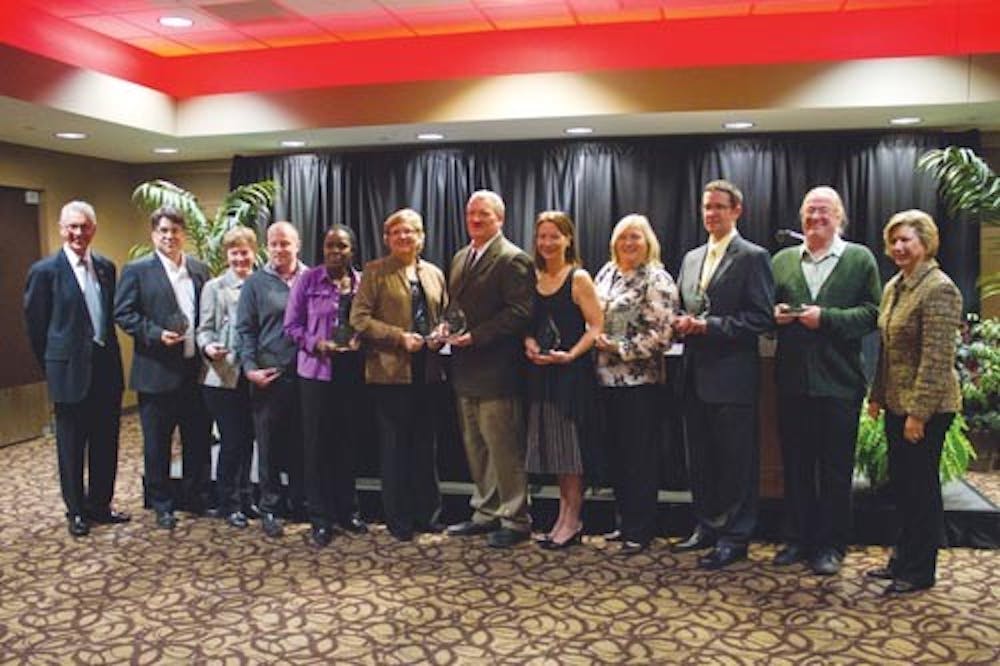For the first time in the university’s history, immersive learning projects are receiving awards for excellence in student development.
Ball State instructors from 24 departments in all seven colleges met in L.A. Pittenger Center to award outstanding immersive learning projects Tuesday night .
“This is the first of what we believe will be an annual celebration of immersive learning,” Ball State President Jo Ann Gora said.
Provost Terry King said 31 projects were completed throughout the past two years were nominated for awards.
Five awards were given out, a number that King said was increased from four due to the outstanding array of nominated programs.
Winning projects received $2,500 for each faculty member involved in the project. Each department that had a faculty representative also received $2,500 to use for faculty development, King said.
“It is rewarding to know that someone recognizes what we are doing,” said Winnie Mucherah, a faculty member involved with the project “Schools Within Context of Community.”
“[The award] makes [the project] more significant. So it isn’t just something we are doing — we enjoy doing it — but we just want to have the support of the university,” Mucherah said. “I think this will make us more zealous.”
Michael Daehn, an associate professor of theatre education, said he came to the event in order to root for colleagues and was unprepared to actually receive an award.
“This is just what we do,” Daehn said. “We got together to create this thing. My partner said it can help kids so I said, ‘Well we had better do it then.’”
Gora said the most important aspect of immersive learning projects is taking what students learn in the classroom and putting it to work in the community.
“What immersive learning projects do is require students to work in a team and do something of value,” Gora said. “That is, in a sense, what the workplace is all about.”
Adam Vaughn, a senior philosophy major and an associate editor of Stance, a philosophy-based publication that received an award Tuesday, said working entirely with undergraduates and within groups gave him management skills he had never used before.
“This experience allows me to know how to work with philosophy rather than just do philosophy,” Vaughn said.
Judy Huhn, who works for Building Better Communities, an office that helps community businesses partner with immersive learning projects, said she sees students working in the very businesses they had formerly volunteered with.
“Students say, ‘I just got out of an interview and the only thing I talked about was my immersive learning project,’” Huhn said.
Huhn saidthe best part of these projects, and why students should become involved, is the sense of community and the ability for students to help grow the community they work in.
“When you can see young talent going into non-profit organizations and those organizations are helping to build up the community or stimulate the economy, that is an incredibly powerful feeling,” said Huhn.


